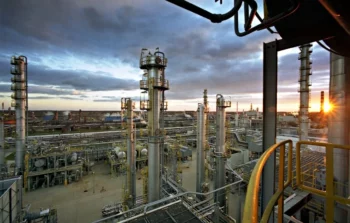Croats are abusing the war situation and Hungary’s energy security vulnerability, says foreign minister

Instead of dealing with pressing energy issues such as the search for new energy resources and the development of infrastructure, the European Union has wasted time in the last few months on moves to cap the price of gas, Péter Szijjártó, the foreign minister, said in Brussels on Monday.
After a meeting of EU energy ministers, Szijjártó said Hungary completely rejects introducing a “harmful, dangerous and totally needless” price cap, a ministry statement said.
The bloc is acting on facts that were relevant in August, but Europe has managed well without the price cap in the meantime, the minister said, adding that the cap risked bumping up prices if less gas is available as a result or if the cap’s threshold is above current market prices.
Szijjártó said this kind of market intervention was “dangerous and irresponsible”, and he called for a thorough preliminary investigation before any action is taken.
He called for an increase in the amount of gas but this, he said, required improvements to infrastructure, adding that there was little point in adding LNG ports in various parts of Europe if the pipeline network was insufficient.
In a “test vote” on the proposal to cap the gas price, 9 member states including Hungary voted against, but this was not enough to form a blocking minority, he noted.
“However many voting rounds there may be today, Hungary will vote no,”
he said, referring to today’s meeting of EU energy ministers. “Pipelines must be built, LNG ports must be built, and new resources found,” he said.
On the subject of central Europe’s supplies of crude oil, he noted that 19 million tonnes of Russian crude is delivered to Hungary, Slovakia and Czechia each year through the Druzhba pipeline. The only alternative route, the Adria pipeline, carries only 12 million tonnes annually, Szijjato said. “This has been common knowledge for at least half a year, yet nothing has been done to expand it,” he said, calling it a “huge mistake” on the part of the European Union.
Meanwhile, the minister said Croatia had made an “unfair” offer when it came to extending Hungarian oil and gas company MOL’s contract which expires at the end of the year, noting that the transit fee would balloon by 80 percent.
He accused
the Croats of “abusing” the war situation and their monopoly, as well as the energy security vulnerabilities of Hungary and Czechia.
Hungary has turned to the European Commission on creating a proposal on ensuring that prices related to routes necessitated by the war should not exceed the European average, he said.
Source: MTI










So, setting price caps does not work? So why does Hungary have so many price caps for energy and some food items!!
So electricity got cheaper ? To keep the pumps turning ? I think Hungary would do the same..
Interesting. Our Politicians are always “fighting”, Hungary’s national interest first, etc. However, as soon as another country does so, Mr. Szijjarto turns to the European Commission (!) for a mechanism to ensure that prices related to routes necessitated by the war should not exceed the European average.
And the Stupid European Union should have invested in the Adria pipeline for the benefit of Slovenia and Hungary! They knew and did not act!
The total utter irony.
Speaking of “knowing” – https://energy.ec.europa.eu/system/files/2021-01/staff_working_document_assessment_necp_hungary_en_0.pdf
“Energy security
As regards energy security risks, the plan refers to the need to keep flexible power generation assets in the system. However, it does not explain why a well-integrated Hungarian wholesale power market could not ensure the capacities needed to ascertain energy security.
The plan describes ongoing projects to diversify routes and sources of natural gas, including a timeline for their implementation. This is an important objective, given Hungary’s current dependency on Russian gas.”
Everyone knew…